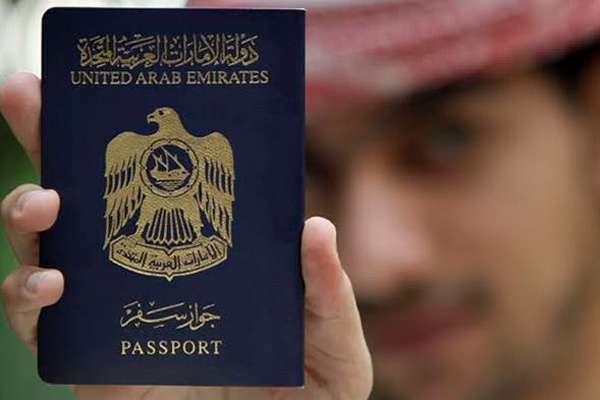Amendments to the UAE’s nationality laws, designed to attract more foreign talent, will provide a shot-in-the-arm to the country’s real estate sector, according to leading industry experts and economic advisors.
Citizenship plans will be offered to a select group of foreigners as the UAE becomes the first Gulf Arab nation to formalise a process aimed at giving expatriates a bigger stake in the economy.
The major policy shift unveiled on Saturday is aimed at attracting talent in a way that will boost growth in the UAE, home to the Middle East’s finance and travel hubs and millions of expatriate residents.
 Scott Cairns, managing director of Creation Business Consultants.
Scott Cairns, managing director of Creation Business Consultants.
The UAE cabinet, local courts and executive councils will nominate those eligible for the citizenship under criteria set for each category. The law will also allow receivers of the UAE passport to keep their existing citizenship.
Scott Cairns, managing director, Creation Business Consultants, told Arabian Business: “This news will attract many people that are distinguished leaders in their fields to call the UAE home. As real estate ownership is one of the categories for citizenship eligibility, we anticipate an influx of FDI into the real estate market.”
Specific categories can acquire Emirati citizenship including investors, doctors, specialists, inventors, scientists and individuals with creative talents such as intellectuals and artists, a tweet from the UAE Government read.
It said the naturalised individual must comply with Emirati laws and officially inform the respective government agency in case of acquiring or losing any other citizenship.
Scott Livermore (pictured below), ICAEW economic advisor and chief economist at Oxford Economics told Arabian Business: “The direct impact of the new UAE citizenship law depends on the roll out and how accessible citizenship is perceived to be. If it does seem accessible, then the new law could have a positive impact on real estate and finance and a range of target sectors that need to attract and retain foreign investment and talent to rapidly develop.”
.jpg?x7p6t66f)
Average home prices in Dubai fell eight percent last year. Rents slumped by 12 percent and are now about four percent below the lowest level reached in 2010.
Lewis Allsopp, CEO of Allsopp & Allsopp, said: “With investors being offered citizenship, the real estate market will benefit hugely. Not only that, but residents in the country will reap the rewards from the skilled professionals who will be enticed by the dual citizenship opportunity.
“I’ve commented for some time now that the overall sustainability of the property market relies on people feeling like the UAE is home and what better way to make people feel more at home than giving them citizenship.”
The UAE abolished the need for companies to have Emirati shareholders last year — a major shake-up of foreign ownership laws aimed at attracting investment into an economy reeling from the coronavirus and a decline in oil prices.
On the latest announcement, Mohamed Abu Basha, head of macroeconomic research at Cairo-based EFG-Hermes Holding, said: “It’s another milestone that comes along a transformation path of the UAE as a financial, trade and cultural hub, allowing for further avenues of economic growth.”
In September, Dubai launched a retirement programme for resident expatriates and foreigners over the age of 55.
Retire in Dubai, the first of its kind in the region, is being spearheaded by Dubai Tourism in collaboration with the General Directorate of Residency and Foreigners Affairs.
Mohammed Asaria is founder and managing director of Dubai-based Range Developments, welcomed the latest news. He said: “It will provide us with a sense of belonging and in turn encourage us to invest further in the UAE. There are only positives with these legislative amendments. Patriotism will develop within this sector of the community.”






